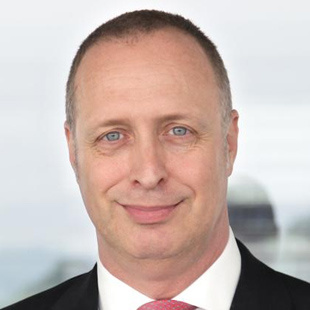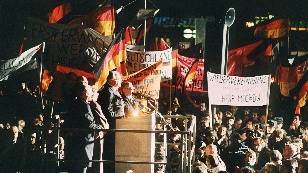
Alex Mänz
Career
Журналист, новостной репортер. Работал в Косово, Израиле, Афганистане и других горячих точках. Политический корреспондент Deutsche Welle из студии Бундестага в Берлине. Редактор ТВ программы DW „Фокус Европы“.
Filmography
1
Six weeks after the fall of the Berlin Wall in 1989, Helmut Kohl went to Dresden. The enthusiastic reception he received there acted as a catalyst for a rapid German reunification. The speech Kohl gave there was the most difficult and probably most important speech of his life. Peter Limbourg will never forget December 19, 1989. That’s when, as a young television correspondent reporting on the historic events surrounding the fall of the Berlin Wall, he went to Dresden, where the West German Chancellor Helmut Kohl was to meet with the de facto East German leader Hans Modrow to stabilize the situation in the communist state. But shortly after his arrival, it became clear that the thousands of East Germans lining the streets and giving him an enthusiastic welcome were in no mood for lengthy negotiations. They wanted a united Germany — and as fast as possible. Until then, Kohl had thought it would take at least three or four years to bring the two Germanies together, but this day in Dresden made him realize that everything could go much faster. His spontaneous speech in Dresden turned into a rhetorical tightrope act. He knew he couldn’t disappoint the East Germans nor snub the four Allied Powers, and that "Any slip of the tongue would have been immediately interpreted in Paris, London or Moscow” as a sign of nationalism. Thirty years later, Limbourg goes back to Dresden and talks to the political leaders of the time and to the citizens of Dresden who, like himself, witnessed that historic moment.

6
2019
43 min